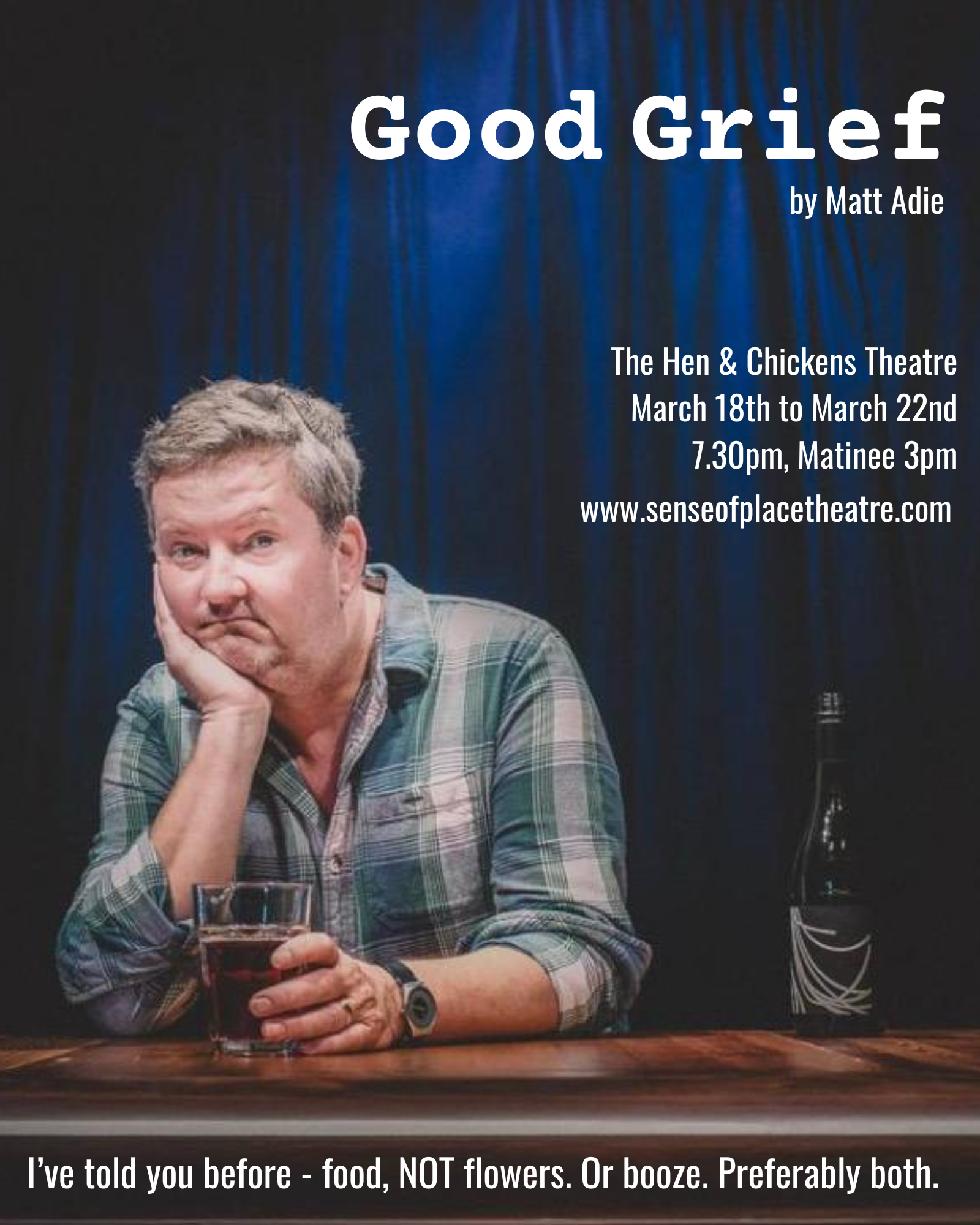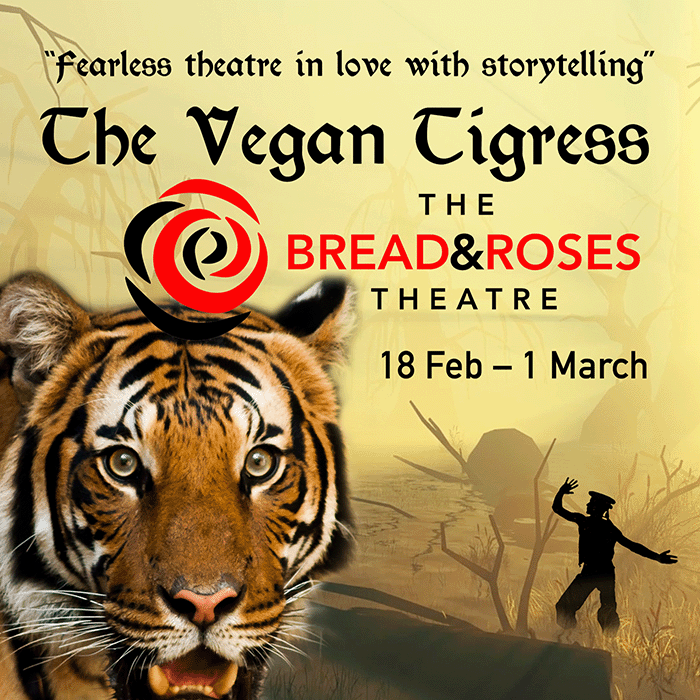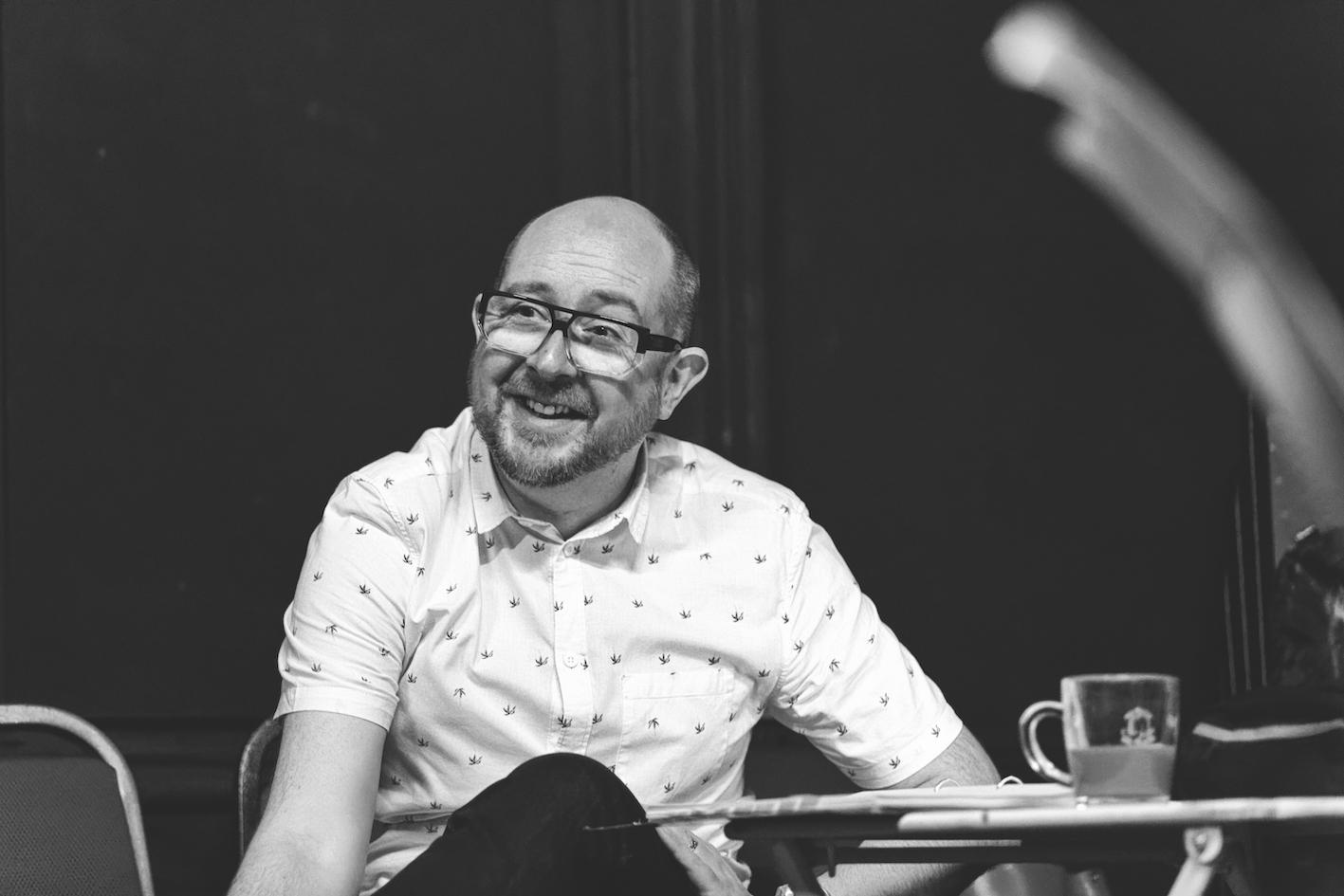WHAT GOES INTO THE MAKING OF A SUCCESSFUL PUB THEATRE?
Interview with Artistic Director Matthew Parker
At the end of this year Matthew Parker will be moving on from his role as Artistic Director of The Hope Theatre in Islington. During his tenureship he has taken The Hope to prominence with high artistic quality and professional standards.
Chatting with Matthew Parker, who has been running The Hope for four and a half years, it becomes clear that it is tough at the top. The level of commitment and sheer hard graft from the one at the helm is paramount in getting the attention of the press and securing a loyal audience base. Furthermore, some of the choices of productions here at The Hope Theatre, have been extremely courageous.
In particular, Parker’s in-house shows have shown that he is made of the kind of stern stuff, that won’t shy away from difficult topics. Parker’s work as a freelance director has had to play second fiddle, but nevertheless he has continued to stretch his own artistry by making several award-winning in-house shows to blow your mind. There is nothing pedestrian about his productions at the Hope, and to prove it, at the time of this interview he was working on his in-house show THRILL ME: THE LEOPOLD & LOEB STORY (2 – 20 April).
So, what does Parker have to say about it all?
For starters, Parker is at every press night at The Hope to support the in-coming companies and be there for them. “They’re nervous … stressed, and I’m a calming influence… hopefully! It’s all about building a relationship between venue and press which I’ve done over the past four years. I know lots or reviewers and lots of press. I have cemented a relationship.” To prove it he reels off the names of three of our reviewers; he knows Sian and Richard and seems particularly keen on Andy who’s just awarded the last production a glowing four-star review. “It’s still a struggle to get national press” says Parker “they tend to turn up out of the blue if something piques their interest.” There is so little money in reviewing so that the national critics are really stretched. Parker is well aware of the importance of feedback to develop audience appreciation of the quality of the work at The Hope.
Parker has garnered many accolades for his work at The Hope. He won Best Artistic Director at Off West End Awards 2017 and was Fringe Theatre of the Year Nominee at The Stage Awards in 2017. He’s also had 5 Best Director nominations at the Off-West End Awards. The first of these LOVESONG OF THE ELECTRIC BEAR (2015), about Alan Turing, which was his first in-house show at The Hope and later transferred to The Arts theatre in the West End. He often mentions this as his seminal work.
Prior to taking on the Hope, Parker was directing his own work at various fringe venues for around five years, so he understands what it’s like on the other side. “I took all the things I thought were great and noticed lots of things not so great”. He emphasises the need for no bullshit but wouldn’t qualify the bad things he’d seen because he firmly believes in a piece of advice his mother gave him, “if you can’t say anything nice, don’t say it at all”. He believes it’s all about a good collaboration between the company and The Hope; everything from box office splits to working together for the success of the show. “I won’t shy away from having difficult conversations because the venue is only as good as the last show. It only takes Islington resident A to come and see something they think is shit and they’re not going to come back. I made sure that the whole process for a visiting company is as clear and transparent and as detailed as they possibly can be, so they know what do, the deadlines, how to move forward in a professional manner. We have companies here who are experienced and others who have never put on a show before. I’m here to help them through the process.”
Parker looks for a positive attitude from incoming companies and uses adjectives such as brilliant, sparkly, shining and positive to get the point across. “If you are good at what you do and are passionate about what you do, the show doesn’t have to be my taste” … there’s a little pause here for effect … “but the company does”, he ends on a flourish.
It isn’t only the in-coming companies who have benefited from their time at The Hope, Matthew’s life has changed so much. “Before, I did decent work with the occasional 5-star reviews. My career and The Hope went on an upward trajectory together. My career as director has been hugely noticed since being at The Hope and I’m proud of what I’ve managed to achieve as an artist.”
“The thing I love about my job. We have companies here who have never done a show before or, it’s the first ever play they’ve written or first time they’ve directed. It’s watching someone’s success, that’s so lovely. The thing I’ll miss when I go is having my hand on a door handle which can open the door for them. I’ll miss that because I know that I’ve been part of an artist’s development. Stars and awards are incredibly important, but this is the icing on the cake; working with other creatives and moving their careers forward - that’s the cake.” Parker works with a small team who are crucial to the overall success. The Technical Manager (Tim Hofmeier), the Associate Director who looks after the Sunday and Monday slots (Luke Adamson) and a Theatre Assistant (Toby Hampton) who helps operate the day-to-day running of The Hope. “The stock checking, box office rotas, weekly administration that would take two days out of my life. He is the flour in the cake, to extend the metaphor!”
Parker isn’t giving anything away about who will be succeeding him at The Hope. He insists that there will be an open recruitment process in the summer. “I am grateful to have been working here, every time I realise that The Hope has created a lovely memory, for audience, critic or company.” But success has not been easy. “I’ve learnt a huge amount. I didn’t know how to run a theatre, I didn’t know whether I’d be able to. In my head I thought I could and really wanted to. It taught me just how tenacious I am. I always want to find a solution.”
So why is Parker moving on? His recent experience of working in the rehearsal rooms might have something to do with it. “I want to take more time thinking about being creative. First and foremost, in directing, but also with movement and choreography.” Recently he was choreographer for Kate Bannister’s Cinderella at the Jack Studio Theatre and movement director for Ross McGregor’s Taro (with thirteen-time OFFIE nominated Arrows and Traps repertory company).
“Being in someone else’s rehearsal room, with Kate (Bannister) and Ross (McGregor), with other people being creative is my favourite thing. I want to do more of that. I spend 80 percent of my time managing companies, bringing shows to The Hope. I have very little time to develop as an artist. My own ambition is that I want to work outside of the London fringe.”
Parker was Associate Director for 2 years at the Brockley Jack. “It’s a good theatre and I learnt a hell of lot because of Kate. The support goes in both directions. I often attend her shows’ dress rehearsals and she’s bee at mine, giving notes – we support each other a lot.”
Parker sees all the dress rehearsals at The Hope and give notes on them. “I think it’s useful to have an outside eye at a dress - to help see the wood for the trees - I always have a director mate come do this at my own dress runs. With the incoming companies at The Hope I only know the script which I read maybe 8 months ago. So, I see it with fresh eyes and I’m honest about how a play comes across, how best to use the space because I know it better than anyone else knows.” Parker doesn’t have room for egos. He leans forward. “I don’t have all the answers but I have been running the space for 4 years. People who won’t listen are difficult. It’s a collaboration. If they’re not going to listen, just going to say no, then we’re going to struggle.” He sits back. “So I say Do what you like with these notes but these are my honest notes. Occasionally the notes have to be actioned for safety or reputation of the theatre.” But tonal notes he concedes are different and he will leave them up to the director to use as they wish.
Over the years Parker has been running The Hope he has become a force to be reckoned with and he’s quite willing to shout about it. “We have punched our way up to be seen alongside the big hitters like Theatre 503, Old Red Lion, the Finborough, winning awards, getting (some) national press coming in. In the early days we would not be known at all, really struggling to get companies in, for us to be a destination for theatre makers, audiences, press. Now we’re known for quality. Entirely because of my endeavour; making sure I’ve got the right shows in there.” It also goes across the board, with all the things he does with branding, the logo, the tag line and how to communicate the brand. The Hope Theatre recently won the people’s vote OFFIE Award for Social Media. “How I communicate across social media and how I make the place seem welcoming - that has attached my personally to the venue so it’s not a faceless room above a pub. That’s why I have to go now because my name and The Hope are intertwined, and I want to be known first and foremost a director.”
Parker really is a man throwing himself into it, making bold choices. “Go big or go home. This is who I am, this who I stand for, this is my entire idea of theatre, venue and style.”
His taste for theatre is theatrical, its heightened naturalism. He wants the audience to ask questions of themselves. His choices are often really brave. In May 2017 he staged the 40th anniversary revival of Dennis Potters controversial masterpiece BRIMSTONE & TREACLE. The production garnered a staggering amount of 5-star reviews and 2 Offie Award nominations. Not bad for a play uncovering the insidious nature of paedophilia. His next play comes with an even scarier scenario. Parker elucidates. “THRILL ME is a two handed, true crime gay musical about the notorious 1920s Chicago ‘Thrill Killers’ Leopold and Loeb. It’s about a relationship between real people. What could possibly have drove these two feted rich young men, who had the world at their feet to abduct kill and torture a child when they were not much more than children themselves.” Whilst Parker is fascinated to find some answers, he knows exactly how he approaches all his work.
“Joy. A lot of joy. Anyone who works with me, takes that away. If you ask them what do you remember at the Hope, the word will be joy. I want them to enjoy but I want to bring joy to the stage. I want the joy of performing to be there. Whether or not the subject matter should be dark.” Parker thinks if he set up his own acting school is would be “Joy of Acting”.
It helps that the Hope black box space lends itself to working in different configurations (although never end on). Parker is also helped by having a strong background in physical work, and physical storytelling. He wants to make it clear, and make sure people can see the actors. At the same time he learns from his actors. “Every one is different. In the end it’s what we create in the room. I have no problem being in charge, I make the final decisions.”
He doesn’t go into the rehearsal rooms with a plan of what he’s going to do other than ‘today we’re doing this scene’. “We just see what happens” says Parker. Considering THRILL ME was his first musical, he’s learning as he goes along. The cast burst into song as part of the dialogue. Music and sound are so important to Parker because he has a background in dance and music, but he’s never done singing in a scene before. He will work closely with Musical Director Tim Shaw. 70 percent of the show is scored, written for a solo piano. “This bit of underscoring lasts from here to two and a half pages of dialogue later, so it’s how to fit the music to the dialogue. Music is dictating a lot more that I’m used to”. He says that tonally he doesn’t know what it is yet but then starts to throw out ideas. “The music is very atmospheric. I’m taking quite a dark, literally dark, absence of light, what lurks in the shadows.” Whilst he’s always scared of everything, this is the 8th show he’s chosen to do at the Hope to stretch and challenge. His nervous excitement is palpable. “What’s really interesting” he adds “there’s no comedy, everything I do has comedy in it somewhere so it’s going to be really interesting for me; how I find the joy.”
Of course, it also helps that Parker pays hard cash. He has worked wonders with a small budget to get the best actors and creatives and works alongside Equity to ensure a legal wage for all actors, stage managers and box office staff working at the venue. No small feat for a 50seat theatre. When the Hope was first set up it was a beacon for new writing and for its equity agreement. Whilst the new writing agenda has been expanded to include any sort of play including classic, the Equity agreement remains and Parker has regular meetings with Equity to make sure the contract is working and to make any necessary changes to the agreement.
After THRILL ME, Parker might have one more in-house show up his sleeve before the end of the year. Then he’s off to new ground - but he doesn’t know where yet. One of the people hardest hit by his decision to move on is James the Landlord of the Hope & Anchor pub which hosts The Hope Theatre. “We are nothing without the landlord who we work alongside. I would not be here without him.” He is so thrilled with their relationship that he would recommend anyone who fancies being an Artistic Director to find a pub and ask to set up a theatre in their spare room. “From the minute people walk through the door it is a fun experience and that starts in the pub.”
Matthew Parker was interviewed by Heather Jeffery, Editor of London Pub Theatres Magazine
@April 2019 London Pub Theatres Magazine Limited
All Rights Reserved




